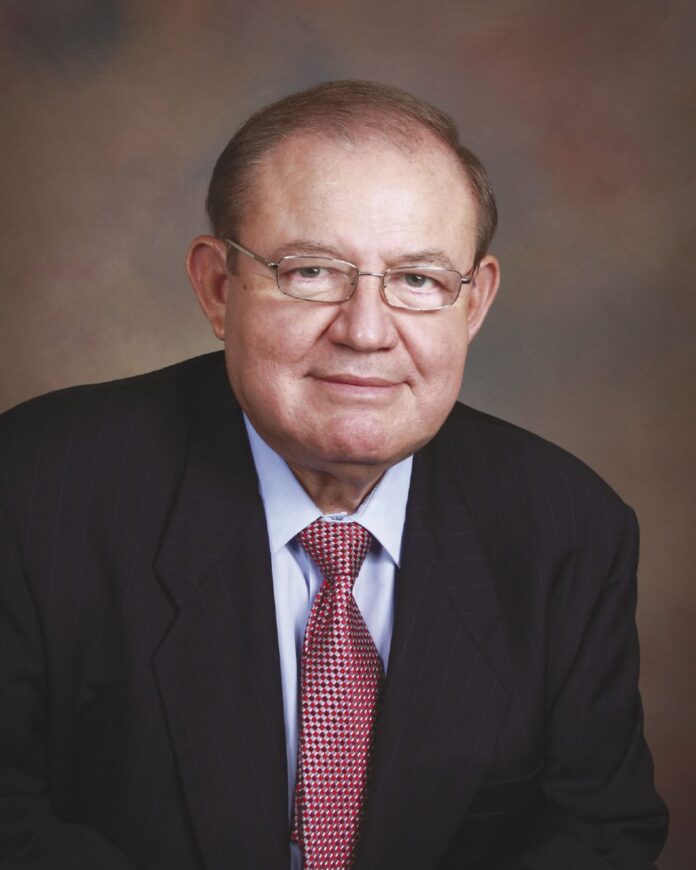EDINBURG — Hidalgo County commissioners will issue a proclamation Tuesday opposing the addition of a citizenship question to the U.S. Census form as they consider joining other cities and states in a lawsuit against the federal government.
As the state’s seventh most populated county, Hidalgo County stands to lose tens of millions of dollars if the large immigrant community here does not count itself in the 2020 Census. The question, coupled with anti-immigrant rhetoric, would deter many living in South Texas from filling out the form, the proclamation states.
“First of all, they are not required (to ask),” Hidalgo County Judge Ramon Garcia said about the federal government. “The U.S. Constitution mandates that all people living (be counted). It doesn’t say all citizens. It says all people.”
Hidalgo County has long been undercounted and therefore underserved because of it. After the 2000 Census 18 years ago, county leaders sued the U.S. Department of Commerce, which oversees the Census, and were able to get an additional 2 percent adjustment in population, according to Monitor archives.
In 2010, the county again hired attorneys to dispute the count and were able to reach a resolution in administrative hearings, Garcia said, though he couldn’t recall specific details about the issue.
For every person not counted, the region loses out on about $15,700 over a 10-year span, Garcia said. If ten thousand people are not counted, it would equal to a net loss of about $157 million over a decade.
“There’s going to be a lot of people that perhaps are going to be concerned about giving any government agency information about themselves or their families,” Garcia said. “And as a result, they’re not going to be counted and they’re not going to be included in the formula the government uses and relies on to distribute entitlement funds.”
Entitlement funds are distributed based on population, and those monies are crucial when it comes to funding programs such as Headstart, Medicaid, Medicare, Children’s Health Insurance Program (CHIP), and even school lunch programs, Garcia said. It also impacts how much funding the area receives for transportation, housing and other essential needs.
“Our county will be one of the counties that will be severely impacted if they start asking citizenship questions on the U.S. Census,” he said. “All those programs depend on entitlement funds and they’re the ones that are going to be severely impacted.”
Hidalgo County faces other challenges that have previously proven detrimental to the accuracy of the decennial headcount, including an inability to reach residents living in colonias. Monitor archives indicate large areas of the county were not counted in 2010.
“I know that was a big issue last time around and they refused to send people in there and knock door-to-door,” Garcia said. “And they wanted to get people’s addresses, and people don’t really have specific physical addresses (in colonias). They have general post office numbers…. They were not being counted because of their method of identifying their residence.”
Language barriers were also reportedly part of the problem almost a decade ago, with several areas of the county receiving forms in Chinese and Vietnamese, according to Monitor archives.
“During the last census we were confident we were severely undercounted by 80,000 to 100,000,” said Garcia, who was also the county judge at the time.
Ten years ago, the Census estimated Hidalgo County’s population at 774,000 — up 205,000 people from the 2000 Census.
Garcia expects the county to easily reach the one-million mark this time around.
“We’re very close, and we ought to get there this year,” he said.
And while the county is facing a seemingly uphill battle, there is at least one thing going for it, Garcia said, highlighting the successful push to open a Census area office in McAllen. Previously, the region relied on a regional office in San Antonio for direction.
“That will go a long way toward making sure we are properly counted,” Garcia said.
The county also formed a committee comprised of a majority of cities and school districts in Hidalgo County to oversee the effort.
“We need to make sure our area is properly counted and we get our fair share of the monies we are entitled to based on the number of people that live in our area,” Garcia said.
Commissioners want to put up a “strong effort” for the upcoming count, and they are considering joining 17 other states and a handful of cities in a lawsuit against the federal government for its inclusion of the citizenship question.
“If we’re going to get involved in litigation, now is the time to do it,” the county judge said. “It’s more difficult after the count is made and the numbers are accepted by the government.”




